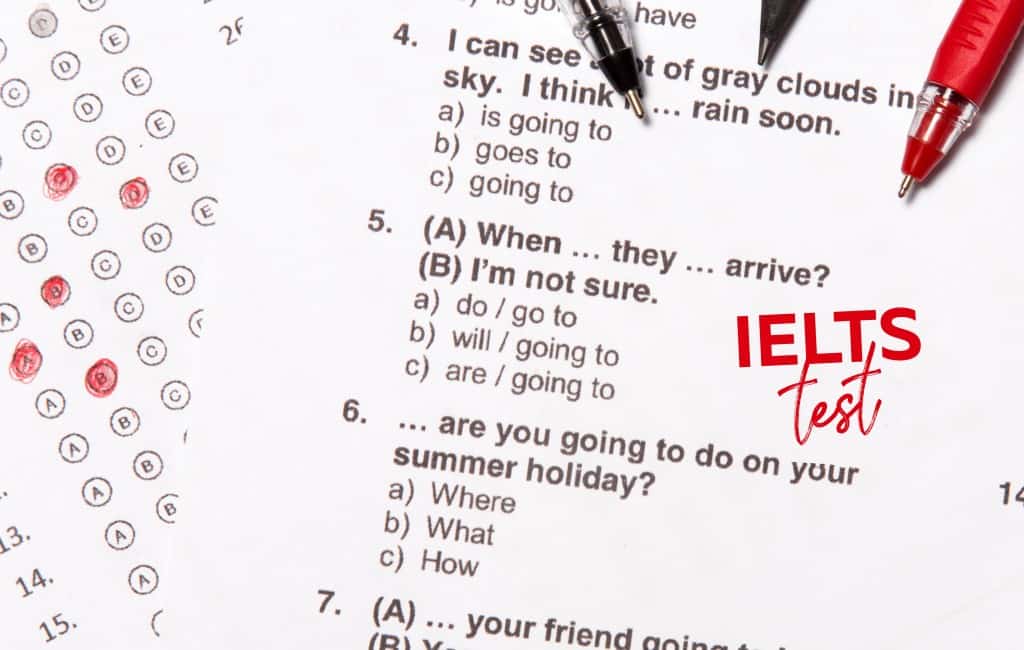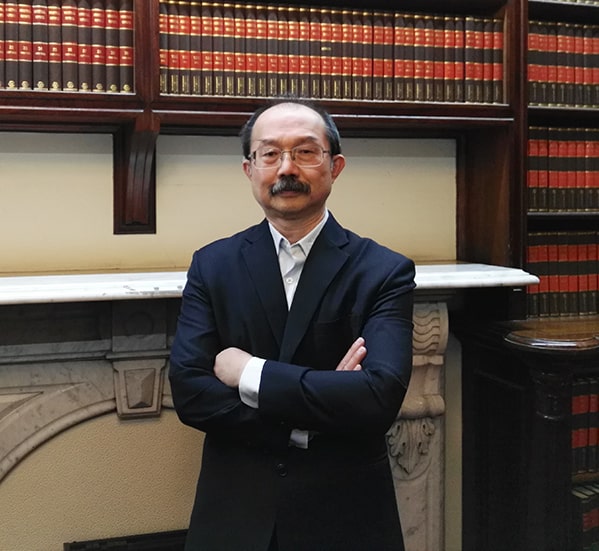
Student visa (Subclass 500) Class TU allows students from the age of 6 to study a course that is 3 months or more
Student visa (Subclass 500) allows a person from the age of 6 to study a course that is more than 3 months in duration. This is a multiple entries visa allowing you to travel in and out of Australia and may be valid for up to 5 years depending on the type of course and the course duration.

Primary school
You can enrol your children in primary school in Australia however, they must be at least 6 years old. You can enrol them in Year 1 to 4, but they will only be granted a student visa (subclass 500) for a maximum of 2 years. You or your partner or a relative must accompany them as their guardian (click here to learn more about Student Guardian visa), or you have made appropriate welfare arrangement for them, until they turned 18. If you are not accompanying them as a student guardian, their school will be required to issue a CAAW letter to confirm alternative welfare arrangements have been made.
You can also apply for a student visa (subclass 500) for your children to study in secondary or high school.
- if applying for Year 9 – must be under 17;
- if applying for Year 10 – must be under 18;
- if applying for Year 11 – must be under 19;
- if applying for Year 12 – must be under 20.
Students must be enrolled in a full-time course that is registered under the CRICOS (click here to learn more). After having enrolled, your school will provide you with a Confirmation of Enrolment or CoE to apply for your student visa (subclass 500).
You can apply for more than 1 course, for example, study for a 12 months English or ELICOS course then proceed to a diploma or degree course. This is called a package of courses. Your school will provide you with a CoE for each of these courses to allow you to apply for a student visa (subclass 500), the visa will be valid up to your last course (also known as your principal course). If you are studying for more than 1 course, the course gaps must be less than 2 calendar months, unless the first course finishes at the end of the standard academic year.

Show money
The Department of Immigration (Department of Home Affairs) may require you to show you will have access to adequate funds to cover your cost of living, tuition fees and travelling expenses. If required, you will need to provide evidence you have access to 1 year of living expenses or $21,041 for yourself, $7,362 for your partner, $3,152 for each of dependent and $8,296 school fee if your dependent is over 6 (subject to annual CPI adjustment), 1 year of course fees and a return flight ticket to your home country.
The Department of Immigration has a discretion to request for evidence of financial capacity, source of funds and genuine access to the funds (click here to find out what documents you can provide).

Do I need to show English proficiency
You may be required to provide evidence of English proficiency, unless you are exempted (click here to find what level of English you are required to show or whether you are exempted or click here to learn about English language requirements).
As a rule of thumb, you will need demonstrate in an IELTS test you have achieved 5.5, if you are not doing an English course. If you are doing a 10 weeks English or ELICOS, achieved 5.0 or 4.5 if you have packaged at least 20 weeks of English or ELICOS.

Health Insurance – OSHC
All students studying in Australia on a student visa (subclass 500) are required to have and maintain adequate health insurance (known as Overseas Student Health Cover or OSHC) for the entire duration of their studies. Your insurance must start from the day you arrived in Australia and not from when you start attending your course. You may breach your student visa (subclass 500) condition if you arrived earlier than the start date of your insurance cover.
However, if you are a Norwegian (you will be covered by Norwegian National Insurance Scheme) or a Swedish (you will be covered by Kammarkillegiet) or a Belgian (you will be covered by the Reciprocal Health Care Agreement with Australia) student, you are exempted from having OSHC.
You can apply for Australia student visa (subclass 500) in or outside of Australia. If you are applying in Australia, you must not hold a Domestic Worker 426 visa or a Temporary Work 403 visa or a Diplomatic Temporary 995 visa or a Transit 771 visa or a Family Sponsored or Approved Destination Status Visitor 600 visa. You will not be permitted to apply for a student visa (subclass 500) if you hold any of these visas.

Including family members
If you for eg, get married (or your partner gave birth to your child), after lodging your student visa application and before the time of decision, you must inform the Department, in writing, of the name, date of birth and citizenship of your new spouse
You can include eligible family members in a combined application or if you have been granted a student visa (subclass 500), they can still be added to your visa by applying as a subsequent entrant.
If you do not declare your dependent family members at the time you applied for your student visa (subclass 500), they cannot later be added to your visa. You will have to reapply for your student visa again to include them as your dependents (click here to learn more about adding or including family members in visa application).
You should note that you should declare every member of your family unit in your student visa application regardless of whether they are included in your student visa application.
Member of your family include (reg. 1.12):
- your spouse or de facto partner
- your child or step-child who is not engaged to be married or is married
- your spouse or de facto partner’s child or step-child who is not engaged to be married or is married
- children who have not turned 18 or have turned 18 but has not turned 23 and is a dependent; or have turned 23 but is incapacitated for work due to a medical or mental condition.

Stop! Other important tips
You can still apply for a student visa (subclass 500) even if your last student visa has expired in the last 28 days, however, this must be the first time that this has happened to you. You will be prevented from applying if you have ever held a substantive visa that you applied in Australia while you are an unlawful non-citizen, that is, you do not have a valid visa (click here to learn if you are eligible).
When applying for your student visa (subclass 500) you must explain to the Department of Immigration why you are genuine temporary entrant (commonly known as GTE) and why you will return home after you have completed your course. You will need to write a statement explaining that you are coming to Australia to study or to accompany a student studying in Australia. As a Policy, the GTE requirement is not intended to exclude students, who after completing their study, to apply for a permanent visa.
All student visa (subclass 500) applicants are required to write a GTE statement explaining why they are a genuine temporary entrant . In your GTE statement, you should provide information or evidence about:
- your previous studies, if any
- gaps in your previous studies, if any
- employment history, if any
- economic situations in your home country, for example, if you have a job offer or describe the job opportunities after completing your studies
- ties with your home country, for example, family, assets, etc
- why you are unable to do the same or similar course in your home country
- your ties to Australia, if any
- value of the course to your future
- your immigration history, that is, if you have travelled outside your home country
If you, for whatever reason, are unable to complete your course before your visa ceased, you will need to apply for a new student visa (subclass 500). However, if the remaining course will take no more than 3 months, you will need to apply for a Class FA Subclass 600 visitor visa (click here to learn more) to complete the remaining course components.
Usually your OSHC expiry date will be the same date your student visa (subclass 500) will cease. If your visa expired before your graduation, you can apply for a Subclass 600 to attend your graduation ceremony.
Being a genuine student means how long you intend to stay in Australia, click here to learn more.
After you have completed your studies, you may consider applying for:
- Temporary Graduate Subclass 485 visa (click here to learn more); or
- Skilled Recognised Graduate Subclass 476 visa (click here to learn more); or
- General Skill Migration (GSM) Subclass 189 visa (click here to learn more) or Subclass 190 visa (click here to learn more) or Subclass 489 visa (click here to learn more) or Subclass 491 visa (click here to learn more) or Subclass 494 visa (click here to learn more).
Changes to your study
The Department may cancel your Student visa (Subclass 500) if you are no longer enrolled in a registered course. You should be aware that your enrolment ceases when you completed your course, even if you have completed earlier than the expected end date on your CoE.
Usually, when you have completed your course, including early completion, you will have 3 months to leave Australia or apply for another visa.
Student visa cancellation
You can request the Department to cancel your Student visa. The Department may also cancel your visa if you do not comply with your visa conditions or you have committed a criminal offence, or you have provided false information in your visa application. If you have committed a criminal offence and has been sentenced to 12 months or more imprisonment, whether or not you spent time in a correction centre, or you have been convicted of, had a charge proven for or have been found guilty of a sexually based crime involving a child, the Department must cancel your visa.
The Department may also cancel your Student visa if:
- you completed your course and do not leave Australia or apply for a visa within 3 months even if your Student visa is still valid.
- you have changed a course since the visa was granted and your new CoE for your principal course has an earlier end date and you do not leave Australia or apply for a new visa within 28 days after completing the new course
- you are studying for a package of courses or course packaging and you completed a course early and have to wait for more than 2 months before starting the next course unless the gap occurs between the end of an academic year and the beginning of a new academic year; eg finished your course in November and your next course starts in March of the following year
You should be aware that if the Department cancel your Student visa (Subclass 500), your dependents’ visa may also be cancelled.
Before the Department cancel your visa, they will send you an Intention to Consider Cancelling your visa and you are usually given 28 days to comment why your visa should not be cancelled.
If your Student visa is cancelled, you will become an unlawful non-citizen unless you apply to the AAT for a merits review. Unlawful non-citizen will be detained and removed from Australia and you may be prevented from making further visa applications or from being granted certain visas to travel to, enter or stay in Australia.
Usually, your student visa (subclass 500) will have the following visa conditions:
- 8501 – maintain health insurance
- 8516 – continue to satisfy criteria for visa grant
- 8533 – notify education provider of changes
- 8202 – course attendance and course progression
- 8104 – secondary applicant must not work until primary student has started course
- 8105 – primary applicant must not work until course has started
If your student visa is affected by a No Further Stay condition, you may be able to have this removed (click here to learn more).
Student visa refusal and AAT
If you applied for your student visa while you are in Australia and the application was refused, you can apply to the AAT to have the refusal reviewed. However, if you are already in Australia holding a student visa that is not due to expire and you returned home where you lodge another student visa application so that you may do another course. If your student visa application is refused, you will not be able to have the refusal reviewed by the AAT even though you have returned to Australia from your holiday and your current student visa is still valid. This is because you cannot make a valid AAT application if you did not lodged your student visa application while you are physically in Australia (s 338(2)(b)).
If you are a Hong Kong passport holder, you may be eligible for the visa extension for Hong Kong citizens scheme (click here to learn more).
If you are in Australia when you apply for this visa, you may be granted a bridging visa to allow you to stay in the country until your application is finalised (click here to learn more about bridging visa).
Australian migration law is complex and difficult to understand, contact our immigration lawyer for a consultation (fee applies) to help you increase your chances of getting an Australia student visa subclass 500 visa (click here to find out how an immigration lawyer or registered migration agent can help you) or click here to learn how to avoid student visa refusal. You may also refer to our FAQs for answers regarding visa application or visa cancellation by clicking here.


041 222 4020 or WeChat: AUDvisa
This article is not intended to be or taken as migration legal advice. The author of this article disclaims any liability for any action or omission on the information provided or not provided in this article. You should always consult an immigration lawyer or a registered migration agent to form an informed opinion on your immigration matter.



